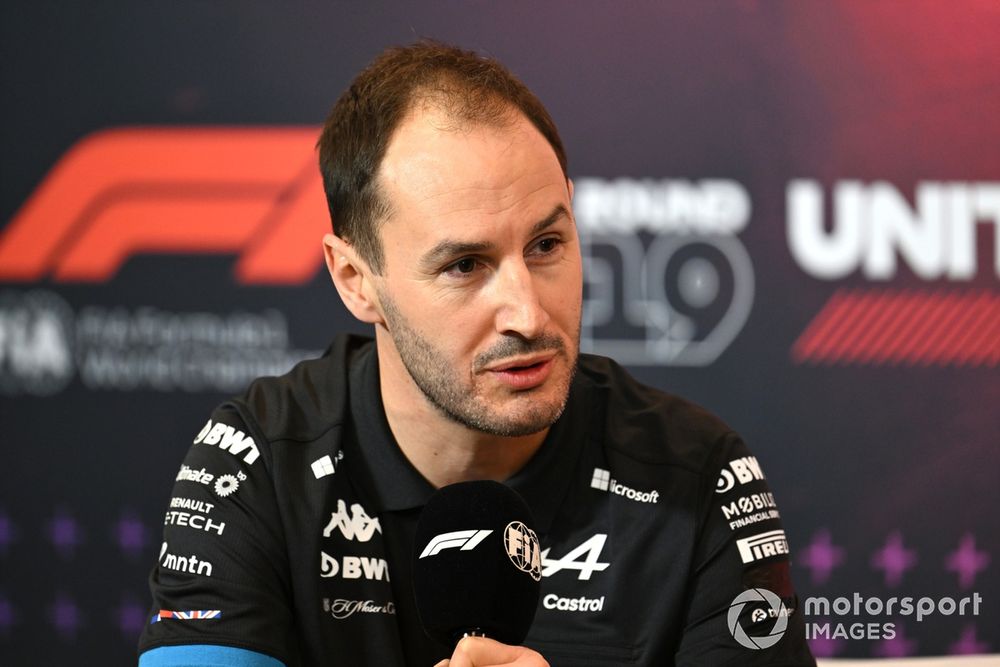
Alpine team principal Oliver Oakes has opened up on the team's decision to switch to Mercedes powertrains for Formula 1's new rules for 2026, stating the team simply wanted "the best engine in the back of the car".
The team's parent company Renault had invested in F1's switch to a near-50:50 split between its internal combustion engine and electric motor, but elected to shutter down its powertrain project at Viry-Chatillon - prompting strikes and protests from its workforce.
Instead, Alpine opted to sign a deal with Mercedes for its power units for 2026 and beyond, rendering it a customer team.
Speaking on F1's Beyond the Grid podcast, Oakes noted that there was a lot of emotion involved in the decision-making to close down Renault's 2026 powertrain project, but that it was in the team's best interests to enact a move up the order.
"Some of those decisions that have been taken this year aren't easy," Oakes told Beyond the Grid host Tom Clarkson. "The Viry topic is one that's very personal to the team and a lot of people, because that is a really great history of being a works team.
"But also times change; you see that in all sorts of sports teams, that you can't rest on your laurels.

"And I think we have to be honest; the analysis was done before I started, and at board level, that the decision to become a customer team was in the right interests of the team.
"I know it was a difficult decision. I know there's a lot of emotion there, because we are proud to be a works team and we still have a year all together next year, but I do feel that was also a big statement of intent of where we want to go.
"We're not here just to be making up the numbers. We want to be pushing forward. I just want the best engine in the back of the car. At the end of the day, for me, we're here to go racing.
"I want to be at the front of the grid. I don't want to be walking to the back. And cruelly, the choice we made was to get the best engine in the back of the car and help the team keep climbing back up the grid."
Oakes said that there was no guarantee that Mercedes would start 2026 on the best foot, as it had with 2014's introduction of hybrid powertrains, but that choosing the German marque's products was borne out of pragmatism - and the obvious choice, as Aston Martin vacated its supply slot to become Honda's works effort.

He added that this was an opportunity for Alpine to benchmark its current car design capabilities, having spent the past few seasons with less powerful engines versus its contemporaries in F1.
"Nothing in life is a dead cert, but I think you have to be pragmatic there. I don't know the full ins and outs of the decision, because it was slightly before I started.
"But if I was to pick at it I'd probably turn around and say, well, history does show that every time there's been a regulation change, they've been strong.
"The big thing with that, really, is also it gives us the ability to benchmark ourselves. At the end of the day, currently, we don't produce a perfect chassis or a perfect engine, and we're very honest and humble on that.
"So from my side, one other thing it does give us is, I dare say, you know, we need to look in the mirror and also work hard on the chassis side as well, which is a challenge we should enjoy.
"From my own personal point of view, that is why we come to work. We want to prove that we're the best, we're good at our job, and we can produce a good race car."







